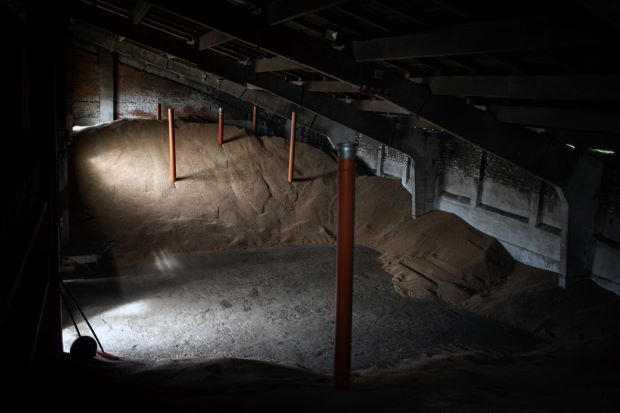World leaders accuse Russia of inciting food crisis

By Matthew Mpoke Bigg, Matina Stevis Gridneff and Shashank Bengali
BRUSSELS – As Russian forces continued a slow, deadly march toward Ukraine’s last stronghold in the battered Luhansk region, the president of the European Commission on Tuesday (24) accused Moscow of deliberately trying to provoke a global food crisis by targeting grain warehouses, ports and other critical infrastructure in its three-month war in Ukraine.
Ursula von der Leyen denounced Russia for destroying silos, seizing grain stocks and enforcing a blockade that has kept Ukraine, one of the world’s most important food exporters, from shipping wheat, sunflower seeds and other products to hungry markets.
“The consequences of these shameful acts are there for everyone to see: Global wheat prices are skyrocketing, and it is fragile countries and vulnerable populations that suffer most,” von der Leyen said in an address to the World Economic Forum, the annual gathering of global business leaders in Davos, Switzerland.
Her comments came a day after the head of the World Food Program warned that if Ukraine’s food supplies remained off the market, the world could face shortages over the coming year that could amount to “hell on Earth”, according to The Associated Press.
But for Ukraine’s Western allies, which have also sought to strangle Russia’s economy with sanctions, options to ease the food crisis appear to be few and fraught with peril.
Von der Leyen pledged to help Ukrainian exports transit through Europe via rail, although experts have said that doing so would free up only a fraction of the harvest. Among the proposals circulating, according to several news reports, was one from a Lithuanian government official in which a flotilla of ships, escorted by vessels from non-NATO countries, would try to break the Russian naval blockade off Odesa and escort Ukrainian cargo ships.
The dilemma comes as Russian troops in eastern Ukraine continued a slow, days-long push toward Sievierodonetsk, the last Ukrainian-controlled city in Luhansk, where four people were killed in an artillery strike overnight, a regional official said. If Sievierodonetsk were to fall, it would deliver a major boost to Russian forces in their bid to control all of the Donbas region, where Moscow has focused its war effort after early stumbles.
In other developments:
— President Volodymyr Zelenskyy of Ukraine said an attack on a military training centre in the northern Chernihiv region last week had killed 87 people, far more than initially estimated, making it one of the deadliest strikes since Russia’s invasion began.
— Russian forces broke into the home of an employee of the Zaporizhzhia nuclear power plant in southern Ukraine and shot him, causing severe wounds, the country’s nuclear energy operator said.
— A midlevel Russian diplomat resigned over the war, becoming the most prominent Russian official to do so. He described the invasion as a crime against both Ukraine and Russia, saying that he had never “been so ashamed of my country.”
— Finland and Sweden were sending delegations to Turkey on Tuesday to meet with President Recep Tayyip Erdogan, who has expressed opposition to the Nordic countries’ bid to join NATO.
-New York Times

